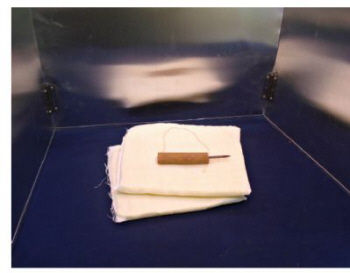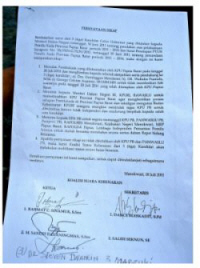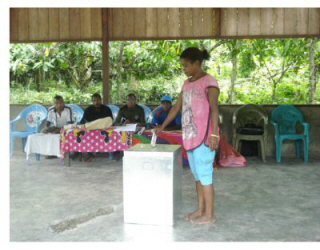| |
.. |
|
Golput
(Boycott)
|
|
by Paolo B. Maligaya, NAMFREL Senior
Operations Associate |
|
from
NAMFREL Election Monitor Vol.2, No.21
|
|
. |
Like in any other election I observed in
the past, we set out early. With the driver, interpreter, and a
local guide, we hit the road before 6:30am because we wanted to
observe the opening of polls prior to the prescribed start of voting
at 7am. In the Philippines, by 6:30am, the people hired by
candidates to distribute sample ballots and campaign materials
outside polling centers (in complete disregard for election rules)
would already be out in full force. In countries like Nepal and
Afghanistan, the voters, mostly men, would already be gathering
outside polling places with glasses of tea in hand, to await the
start of voting.
We chose to first observe a polling station along the main road;
being close to the market, we
expected a good number of people when polls open. When we arrived at
6:45am, we were surprised
to find that the polling station had not been set up. 7 am. Only a
handful of passers-by to buy bread for
breakfast, and the occasional stray dog. 10 minutes more.
Nothing, nobody.
The idea was to cover a remote area of West Papua on election day.
There were three of us on this
observation mission from the Asian Network for Free Elections
(ANFREL): one was to cover an area
near Sorong, the most populated city in West Papua province; another
was to cover a hot spot area
that saw some election-related violence in the run-up to the July 20
polls; while I was assigned to
cover a tribal area in the Arfak mountains, with the provincial
capital of Manokwari as jump-off point.
The prospect of observing how elections are carried out in
traditional tribal societies was very
intriguing. We were aware of the influence that tribal elders wield
over their tribesmen, including whom
to vote for during elections. How does a democratic exercise such as
an election translate in said
societies? We were not even sure if people in traditional tribal
areas get to have their own choice, or
actually get to go out to vote on election day, and fill up their
ballots individually. We were very curious.
We decided that I would be going to Anggi, an area that would take
almost a full day to reach by
vehicle. The prospect of finding a guesthouse there (!) is close to
nil, so we bought sleeping bags,
raincoats, enough water to last us the entire observation period,
food. We expected to hike, which did
not thrill me at all, but I liked the idea of doing something I
haven't done before in the course of
election observation.
However, there was the matter of the surat jalan, or permission to
travel. In many places in Indonesia,
foreigners especially are required to get the permit from the local
police. Indeed, there was a time
when the whole of Western Papua was off limits to travelers. Permits
are required to go to places that
are considered conflict areas; Anggi apparently is one of those
areas. Or was it really? Many activists
allege that in many areas in Papua, the Indonesian police are
committing human rights violations
against the native Papuans.
We dropped by the local police office, where I was told that
somebody was going to give me the
permit in my hotel later in the day; I was requested to give my
particulars, where I was staying,
including my room number. I did not like the idea of giving the
police even my room number. In 2004,
when I observed the Indonesian presidential elections in Papua, the
hotel manager in Jayapura said
that plainclothes police officers dropped by while I was out to ask
about me and my activities; they
even asked about the driver, his phone number, and my itinerary.
Wisely, the manager said she did not
know. The Indonesian police in Papua are known for closely
monitoring the activities of foreigners,
even Indonesian church people, in suspicion that they are giving
assistance to Papuan organizations
calling for independence. In 2004, I thought such practices were
just remnants of the Suharto era that
the authorities who were so far away from Jakarta still had not
shaken off; now I can't be sure. A
plainclothes police man, whom I would never have mistaken for a
police man because he looked like a twentysomething student from the local college, promptly appeared in
the hotel that afternoon and
asked for a few minutes to chat. Thumbing through my passport, he
noted that I have been to some
conflict areas; sensing where this could be headed, I volunteered
the information that I was in Burma
just for a vacation. Eventually I got my permit.
A meeting with the chief of police later in the evening would change
all that. I wanted to give him a
courtesy call before going to Anggi the next day, as is customary
for election observers. The chief of
police said that the situation in Anggi is "hot" right now, and, in
what felt almost like a scolding, strongly
advised me to not go, stressing that if something bad happens to me,
it would be a shame not just for
West Papua (and also for him) but also for the country. Instead,
there were some areas near
Manokwari that I could observe. For some reason, I did not believe
him. As an independent observer, I also did not like that I was
being told where I could and could not do my work, although I knew
that if
it's a question of security, I had to follow. However, it did not
end there. Aside from taking back the
permit already given to me by a subordinate, to be replaced by
another indicating three places where I
am allowed to go, he said I would also be required to sign a waiver
stating to the effect that since I
"insist to observe" despite the warning (which I thought was just
not accurate at all), whatever
happens to me, the police would be free of any responsibility. I
thought this was too much as security
of not just the locals but of everybody in their jurisdiction is
their responsibility, without exception. (I
also could not help but think that a security waiver is a permission
to assault.) After conferring with
colleagues and contacts in the province, I turned in the signed
waiver the following day, but only after
indicating that the waiver would only apply in the three areas
mentioned in the permit. |
.
And that was how I ended up in Ransiki.
It was 8am and no voters had arrived in the lone
polling station in Kampung Ambon. The election
paraphernalia, delivered at 5pm the day before by the
local office of the election commission, had not been
opened because no witnesses from the four candidate
pairs had arrived. The head of the village dropped by
to advise the staff to start the voting once the voters
come in, even if there were no witnesses from the four
candidate pairs for governor. At 8:20, the last of the
polling staff arrived, and the lone witness for the day
(from the incumbents), arrived five minutes later.
Voting started shortly thereafter as voters trickled in;
there were eight who came before we left for the next
polling station. Curiously, all eight voters were transmigrants; no native Papuans had come to vote by
the time we left.
Witnesses of the incumbents were also the only ones
present in the next two polling stations we visited. In
Nuhuwey, we bumped into the head of the district, who had been going
around and visiting polling
stations, asking the poll officers not just to start but to open the
polling stations. According to him, the
head of the village was afraid to open the station because of the
white paper that had been going
around. |
 |
Voters would only need to pierce the photo of the
candidate team of their choice. |
|
|
.
Ransiki is a small, rural coastal town three hours from the
provincial capital Manokwari. During World
War II, Ransiki served as a Japanese base camp which, in 1944 alone,
was attacked by US forces
numerous times. Before that, Ransiki was mainly a plantation for
cacao, which to this day occupy a
large part of the town. The people in Ransiki are generally poor,
with agriculture and fishing as the
main source of income. Sparsely populated, the town officially has
only 6,100 voters.
Its relative remoteness did not make it free from the political
controversies surrounding the July 20
West Papua gubernatorial election. A few weeks before the election,
three of the four candidate pairs,
led by the former regent of Manokwari -- Domingus Mandacan -- formed
a coalition to oppose the
candidacies of long-time governor Abraham Atuturi and incumbent vice
governor Rahimin Katjong, on
the grounds that the governor does not satisfy a recent requirement
that candidates have to have
college degrees, and that the vice-governor is not a native Papuan,
even though there is no legal
document that states who may be considered a native Papuan. The
three pairs also refused to
actively campaign, though their billboards were not taken down. When
they were unsuccessful in
blocking the candidacies, they called for the postponement and even
cancellation of the election,
which had already been postponed three times. A few days before July
20, upon their coming back
from Jakarta after one last unsuccessful attempt to lobby for the
postponement of the election, their
supporters descended upon and closed the local parliament building
as well as the office of the
Panwaslu (election supervisory committee) in Manokwari. At this
time, it was reported in the media
that members of the election commission, the Panwaslu, and even the
police started receiving death
threats. The provincial election commission had to leave their
offices out of fear, and had to run the
election from a hotel room in the city. |
 |
. |
It was also at this time when a
white paper started circulating,
telling
people to boycott the polls. As an election observer, I always find
it a
problem when candidates ask voters to boycott an election: you have
not
been put in office, yet you are already asking them to give up one
of their
basic rights, which many in the developing world are still
struggling to
demand for themselves. In Indonesia, there is the concept of
“golput”
(“golongan putih” or “the white group”) which roughly means the
exercise
of the right to not vote and remain pure or unstained. Essentially,
it means
to boycott participating in an election or to cast blank votes, a
form of
protest for some. In the past, golput had been a problem in
Indonesian
elections; in 2004, figures showed that the percentage of the voters
who
went golput for whatever reason was higher than the percentage of
those
who voted for the winning party.
However, it may be difficult to gauge whether the case of West Papua
was
a case of golput, or plain intimidation, or something else entirely
in the
context of Papua. The white paper was signed by representatives of
the three candidate pairs, led by Mandacan, an elite of the Arfak tribe. Ransiki is predominantly
Arfak. Twice I saw this paper in the
hands of village chiefs, once in the market, and another time while
we were about to cross a river in a
far-flung area in Ransiki. At both times, the village chiefs told us
casually that they will bring the paper
to their villages for the people's information. The paper called for
the cancellation of the election, the
dissolution of the local election commission for being "not
independent," and threatened mass
mobilization of people if demands are not met. |
|
It was 10:30am and voting in the polling station in Hamawi village
had not started. Only one witness
came, predictably from the incumbents' party. The polling officers
said they had not started because
they were still waiting for information from the city. One of them
was more blunt: he said they were
waiting for instructions from the three candidates. There were also
not much voters to speak of waiting
to vote.
. |
In Kampung Sabri, though the polling station opened at 8:30am,
nobody had voted as of 11am. The
polling officers told us that nobody could vote because no party
witnesses came, even the
incumbents'. They also said that if it's already 1pm (the close of
voting) and nobody had voted, they
will just return all the election paraphernalia untouched. There
were maybe 10 or so people milling
about.
In the official list provided by the election commission,
Sabri supposedly had the highest number of registered
voters among the villages in Ransiki, with 498. However,
we found that difficult to believe: there were only a handful
of small houses in the area. The voters list in West Papua
was based on the records from the civil registrar's office,
given to the provincial election commission in advance for
them to clean, verify and update with regard the names of
those eligible to vote for this year's election. The voters list
had been criticized for containing duplicate names and for
being inflated. Our driver, whose family lives in Ransiki,
said that even if all the pigs and chickens in town were
taken into account, it would still had been difficult to arrive
at the total number of voters in Ransiki as indicated in the
official list. |
 |
|
.
No voting was taking place in the next two
villages we visited. While in the other polling stations, the
reasons given for non-conduct of polls were lack of voters, absence
of watchers, and confusion as to whether the election would indeed
push through that day, in the village of Hamor, the polling
officials were more honest: they didn't want to. "Just ask the three
candidates," they said. They added that they will just return the
materials at 1pm. Hamor had 260 registered voters. In Bamaha
village, the polling officers were just as straightforward with us.
314 registered voters. I could not help but think how I would react
if I were one of those voters, and I would not be able to vote
because the polling officers did not want me to. In the Philippines,
there would have been a riot. But this was Papua.
As the voting period winded down, more people had come out to vote,
with some polling stations
indicating that they had more than a hundred voters coming in by
lunchtime. (A fellow observer said
though that there were cases of proxy voting that may not have been
obvious to roving observers like
us, which means that the figures for voters who actually voted may
have been inflated.) In the course
of the day, we learned that no voting took place in many areas of
West Papua, with many villages
rejecting the election paraphernalia when they were delivered, hence
they were brought back unused.
One of the districts that reportedly sent back the materials was
Anggi, the place we originally intended
to observe.
(To be concluded)
Focus on West Papua
Part I - http://bit.ly/okrxOn
Part II - http://bit.ly/psMWRl |
|
|
|
|
| |
.
.
. |
|
| |
| |
|
|

